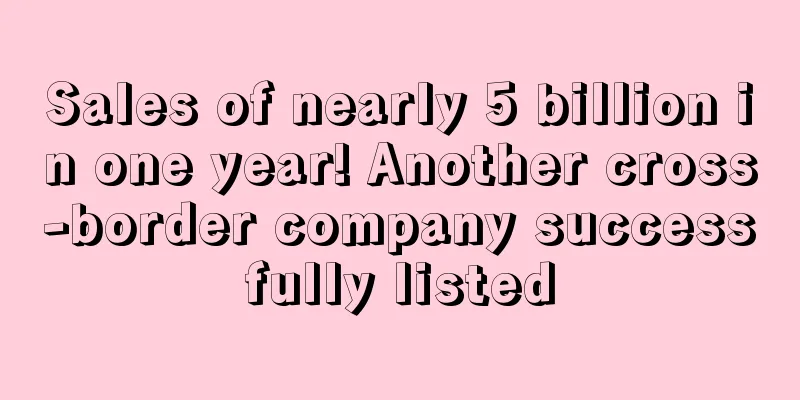What is CSA certification? CSA certification Review, Features

|
CSA is the abbreviation of Canadian Standards Association, a global leader in safety and environmental certification, including Canada, the United States, Europe and Asia. It was established in 1919 and is the first non-profit organization in Canada dedicated to developing industrial standards.
About CSA CSA Group has 35,000 customers worldwide and 39 offices in 14 countries around the world. We can help you access more than 140 countries around the world. It also has eight Global Market Access (GMA) offices in North America, Europe and Asia. It also has laboratories and affiliates in more than 30 countries.
Legal status CSA standards are adopted voluntarily, but federal, provincial and local governments often use and refer to CSA standards when formulating laws and regulations. Such standards become the basis for government legislation, which means they are mandatory.
Applicable product range CSA's certification inspections are mainly focused on eight aspects: 1. Human survival and environment: including occupational health and safety, public safety, sports and entertainment equipment environmental protection and health technology. 2. Electrical and Electronics: including regulations on the installation of electrical equipment for buildings, and all types of electrical and electronic products for industrial, commercial and civil use. 3. Communications and information: including residence processing systems, telecommunications and electromagnetic interference technologies and equipment. Building structures: including building materials and products, civil products, concrete, masonry structures, pipe fittings and architectural design. 4. Energy: including energy regeneration and transfer, fuel combustion and safety equipment, and nuclear energy technology. 5. Transportation and distribution systems: including motor vehicle safety, oil and gas pipelines, material handling and distribution, and offshore facilities. 6. Material processing technology: including welding and metallurgy. 7. Business and production management systems: including quality management and basic engineering.
Documents required for applying for CSA certification for general electrical products When applying for CSA certification or providing an accurate quotation for general electrical products, the following information is usually required: 1. Product certification application form; 2. Product model. If there are multiple models, the differences between them must also be explained; 3. Product purpose and instructions for use; 4. Product structure diagram, parts list, and electrical schematic diagram. Certification Process 1. Complete the preliminary application form and submit it to CSA International together with all relevant product instructions and technical data (including all electrical components and plastic materials). 2. CSA International will determine the certification fee based on the specific circumstances of the product and notify the applicant company by fax. 3. After confirmation by the applicant company, the official application form and notice will be sent to you. The notice includes the following requirements: (1) After signing the formal application form, wire the certification fee (payable in RMB) to the office. (2) Deliver the test samples to the designated location as notified. 4. The designated laboratory will carry out the certification work on time. 5. After the certification test is completed, a preliminary report (Findings Letter) will be sent to the applicant company, which will list the following details: (1) How should the product structure be improved to meet the standards? (2) Other information required to complete the certification report. (3) Please ask the applicant company to review the contents of the draft certification record (4) The marks required for CSA certification and how to obtain them. (5) Factory Tests required for the product. 6. CSA International will evaluate the applicant's response to item 5 above. 7. At the same time, CSA International will prepare a certification report for product production reference and follow-up inspection. 8. At this stage, in some cases, CSA International will go to the factory to conduct an Initial Factory Evaluation (IFE). 9. Finally, CSA International will issue a Certificate of Compliance along with the Certification Record, authorizing the applicant company to add the CSA certification mark to its products. 10. The applicant company must sign a service agreement with CSA International to indicate that both parties agree that CSA International will conduct product tracking inspections at the factory. The applicant company must pay an annual fee to maintain the agreement. Certification Mark CSA Certification CSA is the largest inspection and certification body in Canada. As an independent, private, non-profit organization, it mainly provides product certification, inspection, and related standard development and information services to the public, government, business community, etc. It not only engages in the certification of safety projects based on the authorization of relevant Canadian government departments, but also undertakes performance and quality testing.
Development History -In 1927, CESA published the Canadian Electrical Code. -In 1933, the codes required for product testing were enforced and the Ontario Hydropower Commission became the sole source for testing nationwide. -In 1940, CESA became responsible for testing and certifying electrical products sold and installed in Canada. -CESA changed its name to the Canadian Standards Association (CSA) in 1944. The certification mark was introduced in 1946. -In the 1950s, CSA established international alliances in the United Kingdom, Japan and the Netherlands to expand its scope in testing and certification. The testing laboratory expanded from the first one in Toronto to laboratories in Montreal, Vancouver and Winnipeg. -In the 1960s, CSA developed national occupational health and safety standards, setting standards for helmets and safety shoes. -In the late 1960s and early 1970s, CSA began to expand its involvement in consumer standards, including bicycles, credit cards, and child-resistant pharmaceutical packaging. -In 1984, CSA established QMI, the Quality Management Institute, which registered ISO9000 and other standards. -In 1999, CSA International was established to provide international product testing and certification services, while CSA shifted its primary focus to standards development and training. -In 2001, the three divisions joined under the name CSA Group. -In 2004, OnSpeX became the fourth division of CSA Group. -In 2008, QMI was sold to SAI-Global for $40 million. -In 2009, CSA acquired SIRA. |
<<: What is Amazon Go? Amazon Go Review, Features
Recommend
Logistics company blacklist exposed! More than 800 freight forwarders on the list
In the past week, the cross-border circle has fre...
U.S. retail sales rebound in March, with apparel and sporting goods among winners
Retail sales also rebounded as U.S. consumer conf...
Amazon launches new policy to provide free evaluation services to sellers
Amazon has launched a new Vine policy to help sel...
Middle Eastern e-commerce company Jazp launches new payment option, joining the "buy now, pay later" battle
Last year, a large number of Middle Eastern consu...
What is Umbrella Fund? Umbrella Fund Review, Features
Umbrella Fund focuses on investing in and developi...
What is DEBUNK cross-border remittance? DEBUNK cross-border remittance Review, Features
DEBUNK cross-border remittance provides customers ...
What is ChannelApe? ChannelApe Review, Features
<span data-docs-delta="[[20,{"gallery"...
What is Sprout Social? Sprout Social Review, Features
Founded in 2009, Sproutsocial is a privately held...
I sold my Amazon store at the age of 28 and achieved financial freedom
In 2014, 23-year-old Robert Oliver had just gradu...
What is Peloton? Peloton Review, Features
Founded in 2012, Peloton is a home fitness brand ...
The peak season of the US clothing market has arrived! Lightweight and comfortable products are more popular among consumers
Due to the popularization of vaccines and the rel...
Amazon seller committed crimes crazily in 7 years and made more than 1.3 million US dollars in profits!
Recently, a seller on Amazon’s US site was senten...
About 94% of Germans choose Amazon for online shopping
July 7 news, according to foreign media reports, ...
What is Jitu Logistics? Jitu Logistics Review, Features
Jingtu Logistics focuses on four major areas: cro...
What is PesoPay? PesoPay Review, Features
<span data-docs-delta="[[20,{"gallery"...









